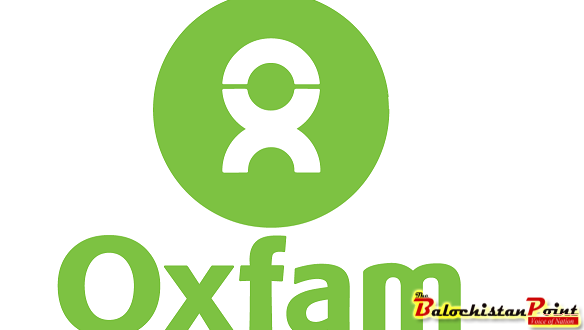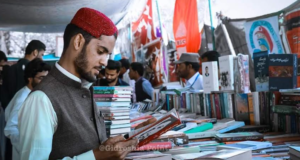ISLAMABAD: Inequality is a major contributing factor in keeping millions of people across the globe trapped in the poverty. Pakistan is no different when it comes to the ever increasing gap between the haves and have-nots. The current situation demands the right policy reforms, especially to redress and remove anomalies in the existing tax systems. Oxfam’s CEO Mark Goldring shared these views during the seminar ‘Can we eradicate poverty without tackling inequality?’ held by Sustainable Development Policy Institute (SDPI), in collaboration with Oxfam in Pakistan at the Margalla hotel.
The event was attended by academics, heads of NGOs and UN organizations, civil society members, donors, Oxfam partners, think tank and government officials and mainstream media representatives. During the keynote address, Mr. Goldring said “Eight billionaires own the same wealth as the 3.6 billion people who form the poorest half of the world’s population. While one in nine people on the planet will go to bed hungry tonight a small handful of billionaires have so much wealth they would need several lifetimes to spend it. Inequality is not only keeping millions of people trapped in poverty, it is fracturing our societies and poisoning our politics.”
Last year, Oxfam said the world’s 62 richest billionaires were as wealthy as half the world’s population. However, the number has dropped to eight in 2017 because new information shows that poverty in China and India is worse than previously thought, making the bottom 50% even worse off and widening the gap between rich and poor.
Mr. Goldring was of the opinion that narrowing the gap between the richest and the rest requires us to create a more human economy; one that does not result in 1% of the world’s population owning the same wealth as the other 99%. An economy that encourages and rewards enterprise and innovation, yes, but one that also offers everyone, regardless of background, a fair chance in life and ensures when individuals and businesses succeed, they do so for the benefit, rather than at the expense, of others.
Dr. Vaqar Ahmad, Deputy Executive Director of SDPI, on the occasion presented an outlook of inequalities in the context of Pakistan and said that our indirect tax system was not only aggressive and biased towards the lower income groups of the society. He said that this system was putting greater burden on the low-income households than the upper ones and hence, was responsible of growing gap between the rich and poor in the country. To rationalize the indirect taxation, he said, the provinces now should come forward to move for direct tax collection on different sectors of economy.
Oxfam in Pakistan’s Country Director Muhammad Qazilbash in his welcome note, explained that that the mounting inequality, poverty and discriminatory tax policies had made the lives of the people in Pakistan miserable. He said, “Oxfam is calling for urgent action to tackle the inequality crisis and reverse the dramatic fall in wealth of the poorest half of the world. It is urging world leaders to adopt a three-pronged approach – cracking down on tax dodging, increased investment in public services and action to boost the income of the lowest paid.” He added that Oxfam envisioned a just world without poverty and would continue to advocate for fairer tax policies and redistribution of wealth.
Web Desk
Published in The Balochistan Point on September 19, 2017
 Balochistan Point Voice of Nation
Balochistan Point Voice of Nation




